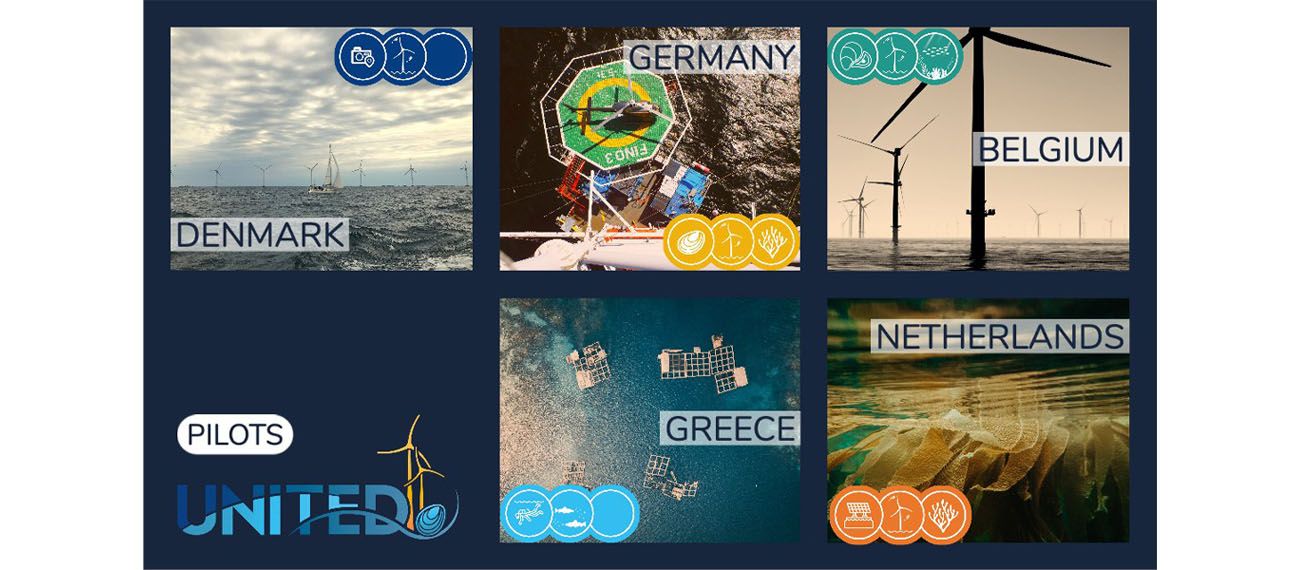
UNITED pilots
Like many other aspects of life, the first months of the UNITED project have been marked by the COVID-19 crisis. Despite some small delays on a few activities, all pilots are now at the pre-operational phase and have started a review of the state-of-the art and the first orders of equipment are ready for installation.
In the pilot in Germany, researchers and technicians organisd a first visit to the nearshore site on 2 March, which enabled discussions on the options for pre-tests. In addition, researchers organized a series of dissemination activities:
- Presentation of the UNITED project at the Ministry of Economic Affairs, Transport, Employment, Technology and Tourism of Schleswig-Holstein, on 23 January; and
- Meeting with a stakeholder (Verband der Deutschen Binnenfischerei und Aquakultur e.V.) to present UNITED. In addition, meeting participants assembled a list of local stakeholders (in Schleswig-Holstein) who may be interested in project activities. A follow-up meeting with the Verband is planned for the coming months.
In the Belgian pilot, partners have been actively proceeding with the pre-operational phase. In this pilot, the first phase involves the installation of a test site nearshore, which will then inspire the final design of flat oyster restoration installations and aquaculture infrastructure offshore later on, as part of the operational phase. A lot needed to be discussed and prepared: the substrate materials to be tested, the identification of a good source of oyster seeds – considering both the status of the Bonamia parasite and the legal requirements in Belgium –, as well as continuing the research on the best equipment for nearshore and offshore sites.With respect to seaweed cultivation, starting material of Saccharina latissima is currently being sourced and cultivated at the Phycology Lab (Universiteit Gent), with the aim to cultivate sugar kelp next autumn and winter at the Belgian part of the North Sea.The first nearshore testing activities are planned to start in June 2020, which may be delayed due to the current crisis because of travel bans and delays with ordered equipment. However, the situation is evolving rapidly, so it is still too early to make reliable predictions.
In the Greek pilot, work in the past months has focused on researching the best sensors and cameras to be installed on the site: these are now being ordered and will be tested in May/June of this year.
Similarly, project partners at pilots in Denmark and the Netherlands have been busy with the state-of-the-art review.
Overall, for the moment, researchers at all pilots are warming up their engines and are getting ready for concrete actions to be implemented both in the pre-operational and operational phases, depending on the pilot sites.
